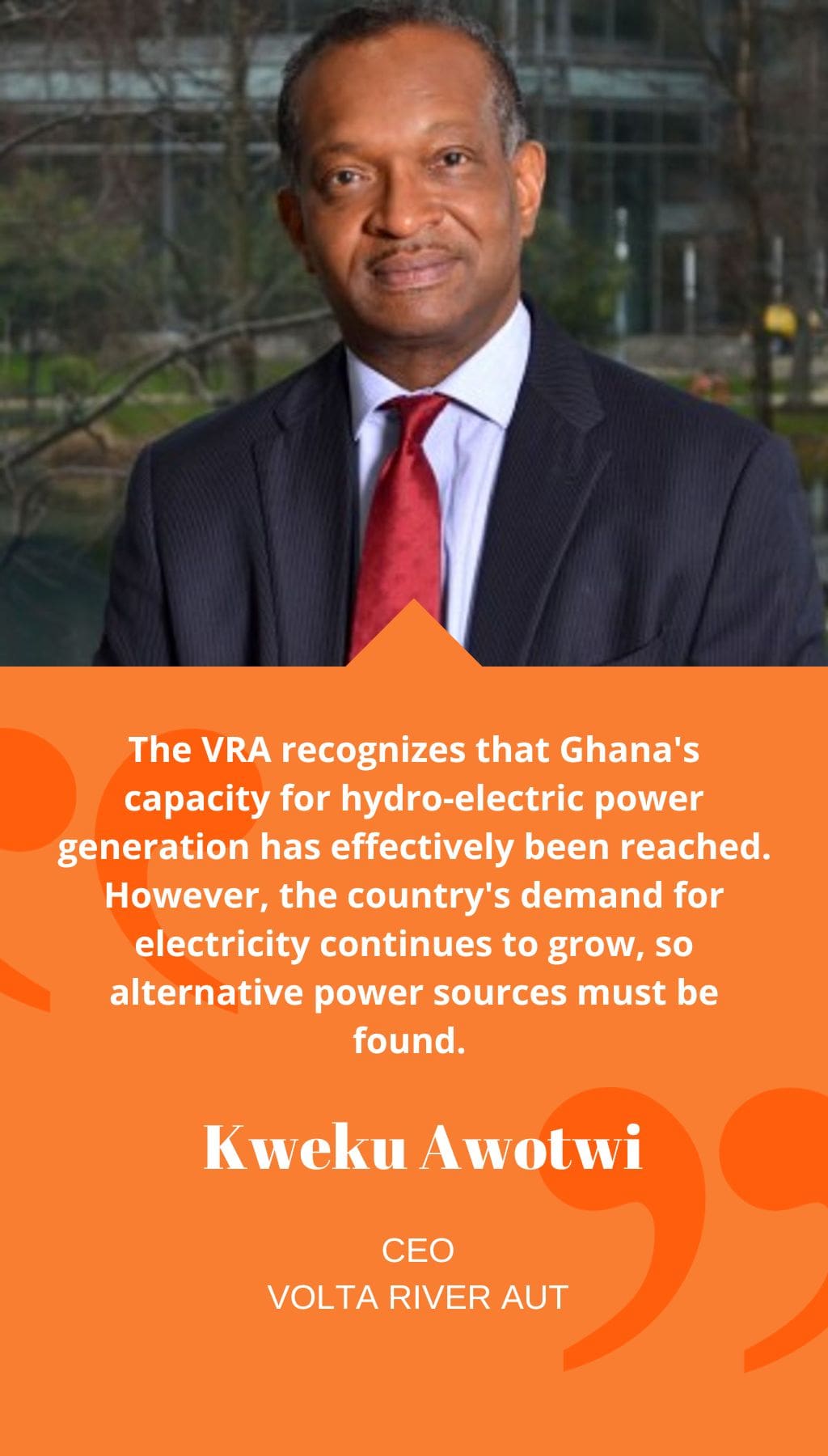
- Ghana | 9 September 2015

Could you please give us an overview of the power generation facilities and pipelines that the VRA is responsible for in Ghana?
Sure. In Ghana, we currently have an electricity capacity of 2,000 MW, out of which 1,200 MW are generated through hydropower. Apart from that, the VRA operates four gas turbines and one steam turbine in Takoradi, and three sets of single-cycle machines in Tema. Additionally, we have what we refer to as ’emergency sets,’ a series of one to two-megawatt units that provide us with an extra 75 MW of emergency capacity. We are in the middle of an expansion phase, and we recently gained parliamentary approval for the construction of a new power plant in Takoradi, which will extend capacity by 110 MW in partnership with Abu Dhabi National Energy Company (TAQA). Another project that will come online over the next three to four months is a joint venture with Canadian investors to build a 132 megawatt green fuel construction. Furthermore, we are conducting feasibility surveys for the proposed construction of a 300-megawatt dam in the north, a 100-megawatt wind turbine on the coast, and we have tendered for our first solar power generation facility. Our goal is to expand Ghana’s power generation facilities to meet the growing demand of the Ghanaian population.
The VRA has announced plans to use natural gas as a significant source of electricity. Does this represent a strategic shift, and what are some of the reasons behind this decision?
It is more of a development than a strategic shift. The VRA recognizes that Ghana’s capacity for hydro-electric power generation has effectively been reached. However, the country’s demand for electricity continues to grow, so alternative power sources must be found. The most realistic solution is to generate power thermally using coal, liquid fuel, or gas. We don’t have coal in Ghana, so until recently, we used crude oil and sometimes diesel as fuels for our generators. There is a great opportunity to use gas as a power source. Gas is a cleaner fuel that does less harm to the environment than burning fuel or coal. Gas pricing is advantageous because it costs less than any liquid fuel and is less susceptible to price fluctuations. Long-term contracts with pipelines ensure that prices remain stable and avoid the volatility of crude oil’s value, as evidenced by the current gas supply we receive from Nigeria, which does not increase or decrease in price dramatically.
How will the expansion of infrastructure to cope with increased demand be financed?
Ghana’s electricity consumption is increasing rapidly, and the current infrastructure does not have the capacity to sustain this growth too far into the future. At the country level, efforts have been made for several years to deregulate the system to allow for greater private sector involvement. For example, in 2005, a new law was passed that separated power transmission and generation to create a level playing field for any other independent producer to come in and invest. So far, the only significant arrival has been that of the Chinese, but we hope that as the rules become better articulated and established, other private players will be involved. As far as the VRA is concerned, our duty is to supply Ghanaians with the electricity they demand. Our expansion plans will add 450 MW of capacity to Ghana’s national grid over the next three to four years. We expect to reach a total capacity of 3,000 MW by 2019. To finance this growth, we hope to raise around $250 million from commercial buyers by the end of this year. If growth continues as we have projected, we will issue a long-term bond to raise further funds next year.














